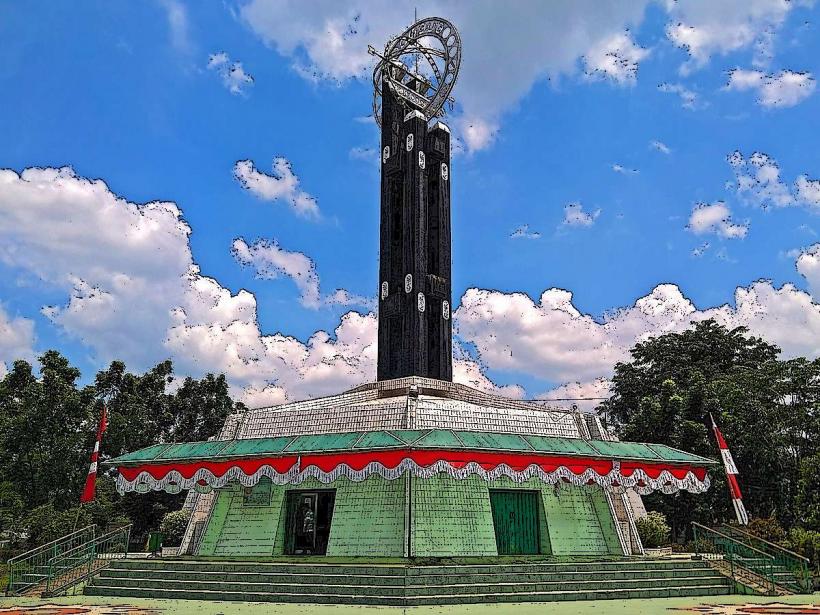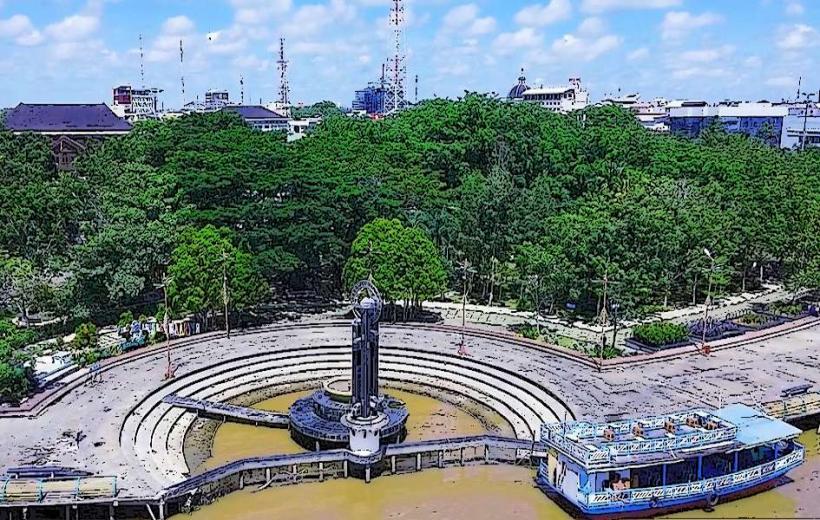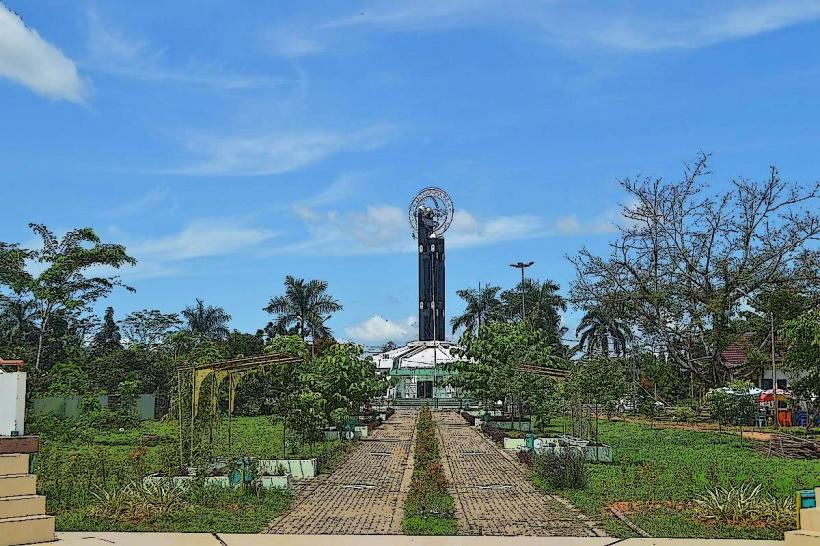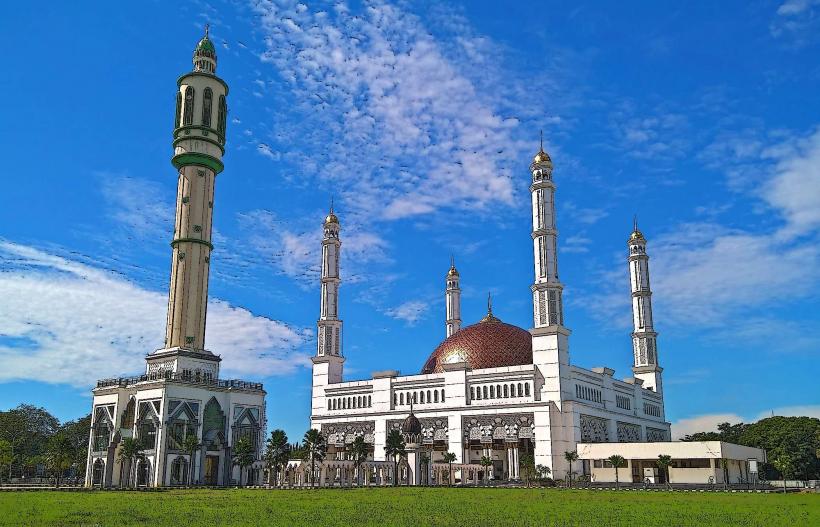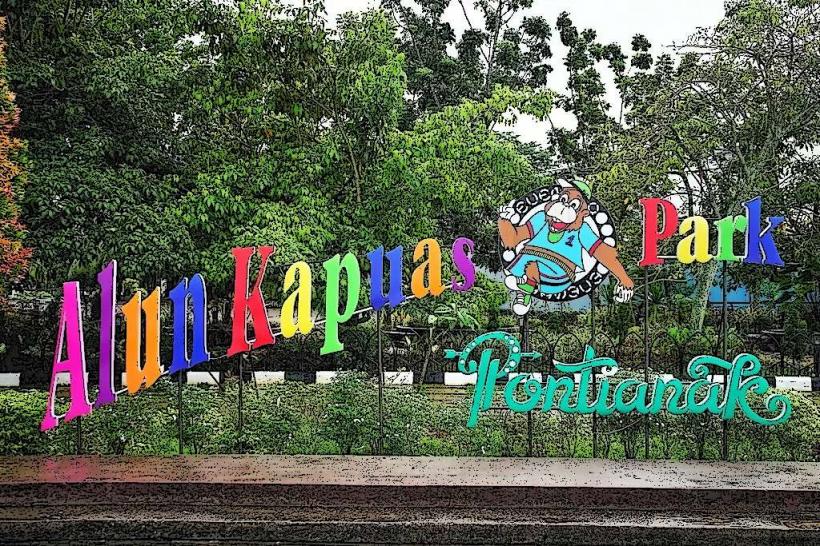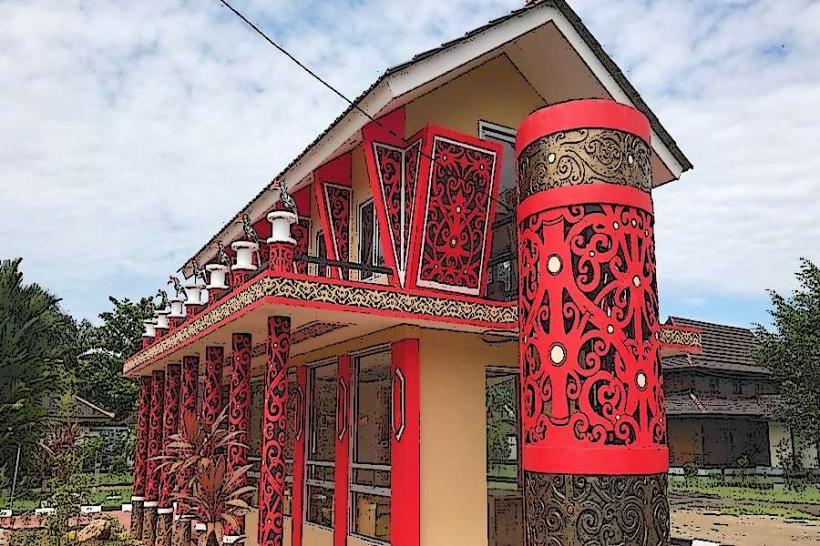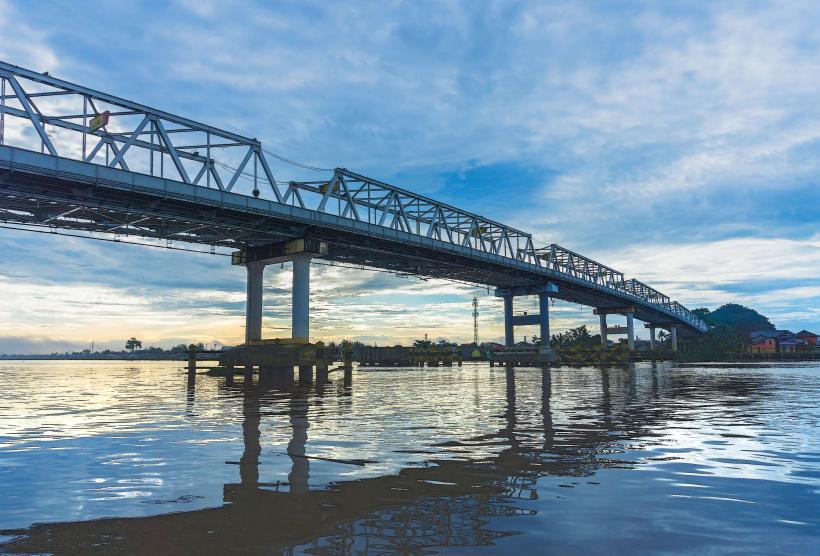Information
City: PontianakCountry: Indonesia
Continent: Asia
Pontianak, Indonesia, Asia
Pontianak is the capital of the West Kalimantan province, situated exactly on the Equator. It is a riverine city built at the confluence of the Landak and Kapuas rivers-the latter being the longest river in Indonesia.
Historical Timeline
The city was founded in 1771 by Syarif Abdurrahman Alkadrie, who established the Sultanate of Pontianak. The location was chosen for its strategic river access. During the Dutch colonial era, it served as a major trading post for gold, diamonds, and agricultural products. During WWII, the city suffered significantly under the Japanese occupation, specifically during the Mandor incident.
Demographics & Population
The population is approximately 680,000. It is one of Indonesia’s most diverse cities, characterized by the "Tiga Suku" (Three Ethnic Groups): Malay, Dayak, and Chinese (primarily Teochew and Hakka). The economy is driven by trade, rubber processing, palm oil, and the vibrant service sector in its Chinatown district.
Urban Layout & Key Districts
Equator Monument Area: Located in North Pontianak, the site of the original $0^\circ$ latitude mark.
Chinatown (Gajah Mada & Tanjungpura): The commercial heart of the city, famous for coffee shops and night markets.
The Riverfront: The historic core featuring the Sultan’s palace and the city's oldest mosque.
Siantan: A northern district across the Kapuas River, connected by the Landak Bridge and ferries.
Top Landmarks
Equator Monument (Tugu Khatulistiwa): The city’s primary icon; twice a year (March and September), a shadowless phenomenon occurs here during the equinox.
Kadriyah Palace: The royal palace of the Pontianak Sultanate, built mostly of ironwood (belian).
Jami’ Mosque (Masjid Jami’ Sultan Abdurrahman): One of the oldest mosques in West Kalimantan, located near the palace.
Museum Negeri Kalimantan Barat: Showcases Dayak artifacts, Malay royal regalia, and Chinese ceramics.
Vihara Bodhisatva Karaniya Metta: A historic Chinese temple reflecting the city's Teochew heritage.
Transportation Network
Air: Supadio International Airport (PNK) connects the city to Jakarta, Surabaya, and Kuching (Malaysia).
Sea: The Port of Pontianak (Dwikora) is a major terminal for PELNI passenger ships and cargo.
Road: The Trans-Kalimantan Highway connects Pontianak to East Kalimantan and the Malaysian border (Entikong).
River: Speedboats and ferries are essential for reaching remote inland areas along the Kapuas.
Local Transit: Gojek and Grab are the primary modes. Traditional Oplet (minibuses) serve fixed routes.
Safety & "Red Zones"
Haze: During the dry season (August–October), the city can experience severe "Haze" due to peatland fires, leading to hazardous air quality and airport closures.
River Currents: The Kapuas River has powerful currents and heavy barge traffic; swimming is not advised.
Heat: Due to its equatorial position, the sun is exceptionally intense; high UV protection is mandatory.
Digital & Financial Infrastructure
4G/5G coverage is stable in the city center. The currency is the Indonesian Rupiah (IDR). ATMs are abundant along Jalan Gajah Mada. QRIS is widely used in modern cafes and restaurants.
Climate & Air Quality
Tropical rainforest climate. It is hot, humid, and receives high rainfall year-round. Air quality is generally good but fluctuates severely during the fire season.
Culture & Social Norms
Coffee Culture: Pontianak is famous for its Warung Kopi (coffee shops); social and business life revolves around drinking Kopi Sahid or Teochew-style coffee.
Cap Go Meh: The city hosts one of the largest Lunar New Year celebrations in Southeast Asia, featuring spectacular "Tatung" (spirit medium) parades.
Cuisine: A unique fusion of Malay and Chinese flavors. Famous for Chai Kwe (steamed vegetable dumplings), Sotong Pangkong (dried grilled squid), and Aloe Vera products.
Local Cost Index (IDR)
1 Espresso/Kopi Susu: 10,000–25,000 IDR
1 Standard Lunch (Nasi Akwang/Malay Rice): 25,000–50,000 IDR
1 Short Taxi Ride: 30,000–50,000 IDR
Nearby Day Trips
Kijing Beach: A scenic coastal area about 2 hours north of the city.
Singkawang: 3 hours north; known as the "City of a Thousand Temples" and the center of Chinese culture in Kalimantan.
Facts & Legends
Legend says the city’s name comes from Kuntilanak (vampiric ghosts). The founder, Sultan Abdurrahman, reportedly had to fire cannonballs to drive away the ghosts haunting the forest before building the city. A geographic fact: The original Equator Monument was built in 1928, but due to the Earth’s axial tilt and polar motion, the actual $0^\circ$ line has shifted slightly north of the building. Historically, Pontianak was the capital of the Lanfang Republic, a short-lived 18th-century state established by Chinese gold miners.

